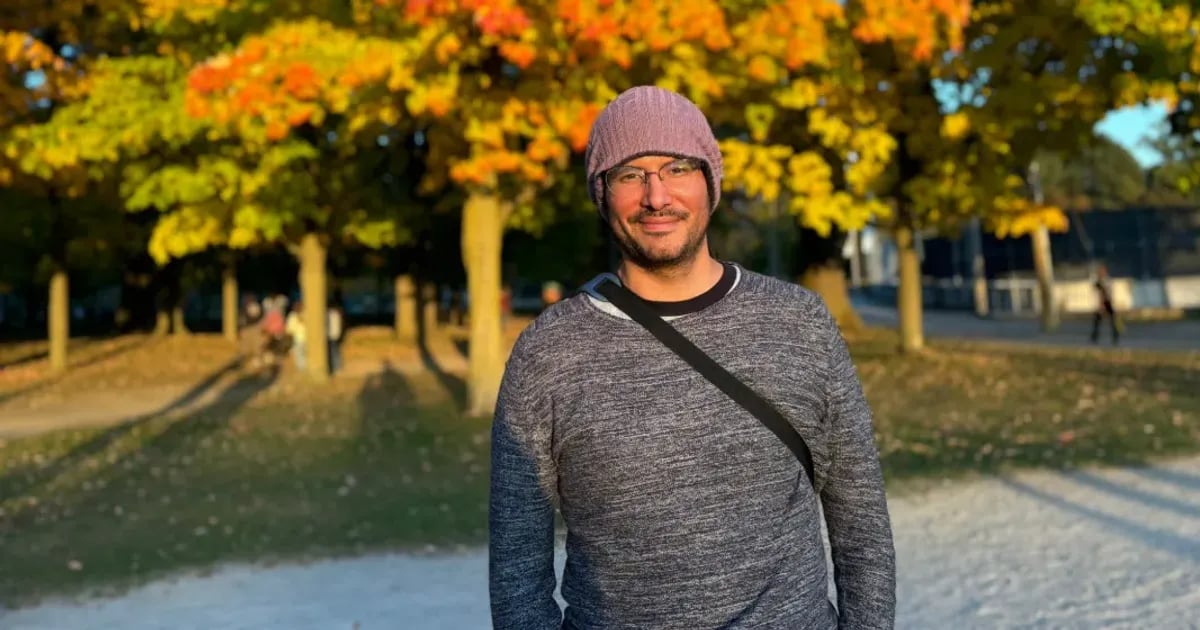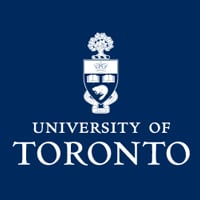Hi! I'm Franco Mosso, a 38-year-old Peruvian. I am married, and with my wife, we have a 10-year-old daughter. I studied Economics at the Universidad del Pacífico. When I graduated, I had the opportunity to be part of the group that created EnseñaPerú (EP). This nonprofit organization seeks to transform Peruʼs education system by building a leadership movement countrywide.

My journey as the CEO of EnseñaPerú
I worked in EP as CPO (Chief Program Officer) since I was 22, and at 27, I became CEO. In my fifth year as CEO, in 2018, halfway through my tenure, I went to Harvard to complete my master's degree in international education. I agreed with the EP board to go away for a year and then return.
Together with my team, we grew the number of directly impacted students from 3000 to 25,000, the number of indirectly impacted students to over 400,000 through our impact in regional policy, increased funding from 4 million to 25 million soles, and went from a team of 20 people to a team of 115. We grew for 10 years uninterrupted amid political, economic, and health crises while opening three new programs and launching an exciting vision of citywide systemic impact. I decided to move on last year and open new chapters in my life. Looking back, I grew personally and professionally; I learned what it means to create social impact collectively, to enable the voices of those unheard, and how to rally groups of exceptionally talented and committed people locally, nationally, and internationally towards a greater purpose. Now that I am in Canada pursuing my Ph.D. I hold a consulting portfolio as an international consultant on youth leadership and empowerment, learning ecosystems, and collective leadership issues. I also sit as an advisor and board member in several foundations related to youth development worldwide.
Why University of Toronto?
As part of my new work and study phase, I am a doctoral student in education at the University of Toronto. I am researching and deepening issues of student leadership, activism, citizenship, and democracy across the global south. To be honest, I applied to Canada because of family matters. My father, mother, sisters, nieces, nephews, and brother-in-law live here. I could have applied to other countries, but my priorities are tied to my family and daughter. I limited my applications to three universities in Canada: the University of Toronto, McGill University, and the University of British Columbia. I preferred UToronto and McGill because they were the closest to my family's home. Fortunately, I was accepted at both and rejected by British Columbia. Finally, the funding criteria helped me decide which one to accept. UToronto offered me a more complete financial package, and, due to family considerations, I accepted their offer.
My application process
I had to submit my CV, two letters of recommendation, grades, and some essays. They didn't ask me to take the English test because I had already graduated with a master's degree from Harvard. As an additional requirement, I was asked to submit a previously written research paper.
I had to apply on November 15. I started working on the essays in October. I could not leave them to the last minute because of their complexity. I copied the essay questions onto a blank document and started brainstorming ideas towards the end of September. In October, I drafted the first paragraphs. Then, I set aside the last three weeks to work paragraph by paragraph.
I started writing to my recommenders a month and a half before and followed up with them once or twice. My Master’s transcripts (which reflect my courses and academic performance) were also required. I logged into the Harvard portal, downloaded an unofficial copy, and verified that everything was correct. Between August and September, I wrote individually to six Toronto faculty members of the program I was applying for. The university websites list the faculty directory with their institutional e-mail addresses and published work, even if they are taking students for doctoral supervision. I researched their work and understood their perspectives before writing to them. In the email, I introduced myself, talked about what I had done for the last 15 years, what I had learned and had had an impact on, and then stated three reasons for connecting with their research agenda. After that, I requested a brief 15-minute meeting. The one professor I wrote to at McGill had a Zoom meeting with me. In Toronto, two gave me a Zoom meeting, three wrote back to me, and one did not respond to the email. One of them even gave me detailed advice on setting up my essays. In British Columbia, I could not contact professors; I was not admitted there.

My main professional experiences
First, I highlighted my role as CEO with the social impact on education in Peru. Second, I highlighted my research experience as CEO of EP over the last decade and my master's degree courses. I had researched on my own and at EP, I had helped lead the quantitative and qualitative academic research agenda. Third, my activist work, questioning how things work. I highlighted everything that had to do with social justice in my profile; the fact that part of my family comes from the Amazon and how much they have struggled.
I connected my professional experience, my personal story, the impact I have generated, what I have learned, and what I want to understand with the plans, institutional spirit, and values of UToronto.
My essays
When asked to describe my past experiences and how they relate to Community Development and Adult Education (the program I was applying to), I shared the journey that has defined me. I told them about the social movement I’ve been part of for 15 years—how I grew within it, became its CEO, and worked to expand its impact.
Then came the questions about my academic experiences and long-term goals. I explained that my research would focus on understanding how young people support each other in becoming citizen activists.
One of the essays asked about equity and social justice, and that’s where I shared my story. My great-grandmother was from Loreto. She only made it to second grade. The young people I want to support today, in many ways, remind me of her—of the barriers she faced, of the opportunities she never had.
Then, they asked what I wanted to investigate. I spoke about student leadership, about my own experiences, and how they led me to this path. As I explored my research interests further, I found a connection with the work being done at the University of Toronto. They had a focus on learning within social movements—exactly what I had been doing with young student leaders.
As I delved deeper, I discovered that scholars in Toronto were already studying this. I began shaping my interest around it, citing relevant research, building a strong foundation for my proposal. At the core of my work was a question: How do youth-led citizen movements create learning experiences for other young people, and how does that translate into impact within their communities?
Finally, they asked me to name professors I could work with. I found the perfect mentor—Professor Hye-Su Kuk from Korea. Her expertise aligned with my focus, and her research background made her an ideal guide for this journey.
The last question: Is there anything else you want to share? They allowed me to add 500 more words. So, I did what felt right—I told them a story. I drew from Yatimaq, an initiative from one of my students.
Financial Aid
Each university has its financial aid policy. In Canada, most universities are public and receive state funding. The Canadian government allocates specific amounts for different types of scholarships at each institution. The laws that regulate this come from the federal government, although some universities also set their own conditions.
In my case, the PhD lasts between 4 and 5 years full-time, or between 6 and 8 years if it is part-time. I have a maximum of 6 years to complete it, but I plan to finish it between the fourth and fifth year. In Toronto, doctoral students are funded for 4 years. It is a full scholarship per year, guaranteed for that period.
At McGill, for example, the funding was only for 3 years, which makes an important difference. This is because the first two years of the PhD include courses, but then one focuses exclusively on research, so from the fourth year onwards, we are expected to be able to seek additional funding or cover certain costs on our own.
All PhDs are awarded base funding, which can be around $25,000 to $30,000 per year. However, living in Toronto with family is expensive. Rent alone can reach $30,000 per year. For example, in the building where I live, the rent for families is approximately $2,000 per month. Add to that food, transportation, and other expenses, which bring the cost of living to more than $40,000 a year.
The university covers part of it. In my case, in addition to the base funding, the department nominated me for an additional scholarship called Connaught, intended for international students. I did not apply for it; it was an internal decision. This scholarship gives me an additional amount each year for the same four years. It is not a huge difference, but it is significant.
My Adaptation Process
My adaptation process was positive. I consider the university to be a good place and I arrived with a mindset of gratitude, which facilitated my integration. I took full advantage of the opportunities available.
One of the first challenges was planning the arrival with my wife. Our priority was to make our daughter feel good: to ensure that she went to school, formed a new circle of friends, and kept in touch with her friends in Peru. That process was successful.
At the university level, the adaptation included logistical steps: registering on the platform, enrolling in courses, and familiarizing myself with the system. It was also necessary to get to know the city, mainly the places necessary to manage the budget, since the cost of living is high. During the first month, we explored, and by October, we were clear about our financial routine.
We had to complete several formalities: residence permits, work authorization for my wife, and other bureaucratic processes. It was key to stay together, share family time, and not fill the day only with academic obligations.
Now we are facing the winter, which is very intense, but we are enjoying it. We still have some things to understand, such as the health system, but we are making progress. Living here means adjusting expectations: I am not a millionaire, and I don't frequent restaurants because they are expensive. However, all this has taught us to value the essential: being together, enjoying the simple things.


